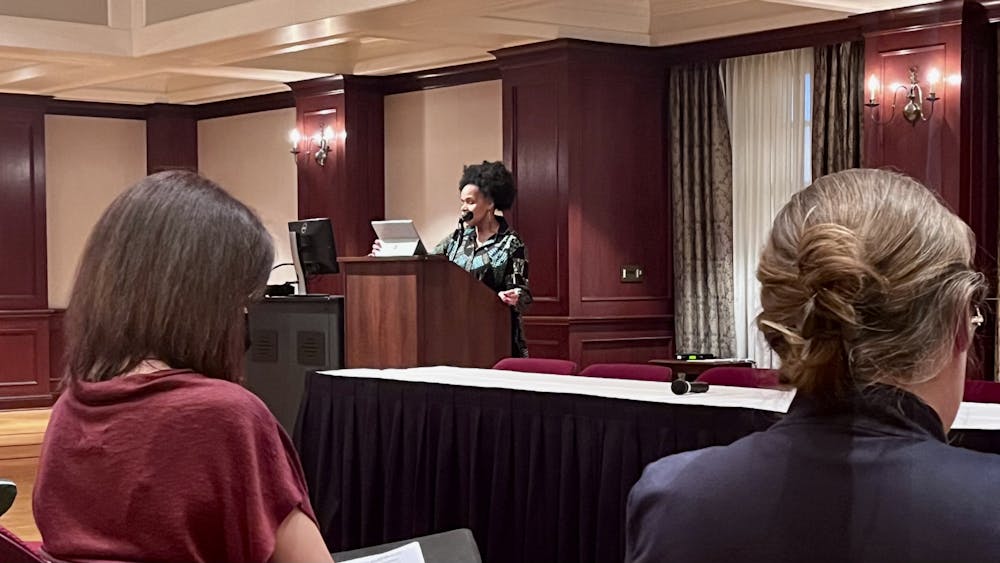The 2023-24 Altman Program in the Humanities kicked off its spring symposium on April 18. This two-day event brought together a diverse group of speakers and educators to discuss environmental justice with Miami University students. Shriver’s Heritage Room buzzed with excitement as the symposium’s opening keynote speaker was introduced.
Jennifer James is an associate professor of English and Africana Studies at George Washington University and author. Her book on African American experiences of war, “A Freedom Bought with Blood: African American War Literature, the Civil War-World War II,” received a Choice Outstanding Academic title.
She opened her speech with a personal anecdote about her upcoming book “Black Jack: Andrew Jackson and African American Cultural Memory.” The book traces three generations of African-Americans enslaved by Jackson, many of whom are direct ancestors of James herself, something that inspired her interest in the ecological aftermaths of enslavement.
James is at work on another book, “Captive Ecologies,” which is an examination of the environmental afterlife of slavery and an exploration of the connections between racial justice and environmental justice. Her talk drew from two chapters of “Captive Ecologies,” considering the ways ex-slaves’ experience of plantation capitalism has shaped the black ecological imagination.
“I suggest that black experiences of injustice, environmental and political, have led to complex responses to the natural world that require their own interpretive strategies,” James said. “And my book is one attempt to do that”
For James and her school of black ecofeminists, thought, racial oppression, sexism and environmental injustice are impossible to separate. Just as the relationship between the owner and the owned has been leveraged to degrade women and African Americans, the private ownership of land shapes its conditions.
“If the Earth were free, it would mean that everyone and everything else would have to be free,” James said. “The freedom of the earth necessitates the destruction of all systems of oppression.”
Ecofeminists want to see change by growing the viability of commons, or shared land and resources. James sharply disagrees with the view of human nature as inherently selfish and rejects the basis of the tragedy of the commons.
The “tragedy of the commons” is the concept that when a resource is collectively owned, human selfishness will cause owners to deplete the resource with no regard for the others using it. This theory motivates what James calls “ecologies of profit” - relationships with nature built on exploitation rather than coexistence.
“The commons is about creating collective land ownership for the benefit of the human,” James said.
Beyond commons and collective spaces, James wonders what the full emancipation of Earth could look like. To her, collective spaces bring us closer to a sustainable relationship with the planet, but ecological mutuality does not begin or end with possession of any kind.
“What if the natural world could never be mine, yours, or even ours?” James said.




